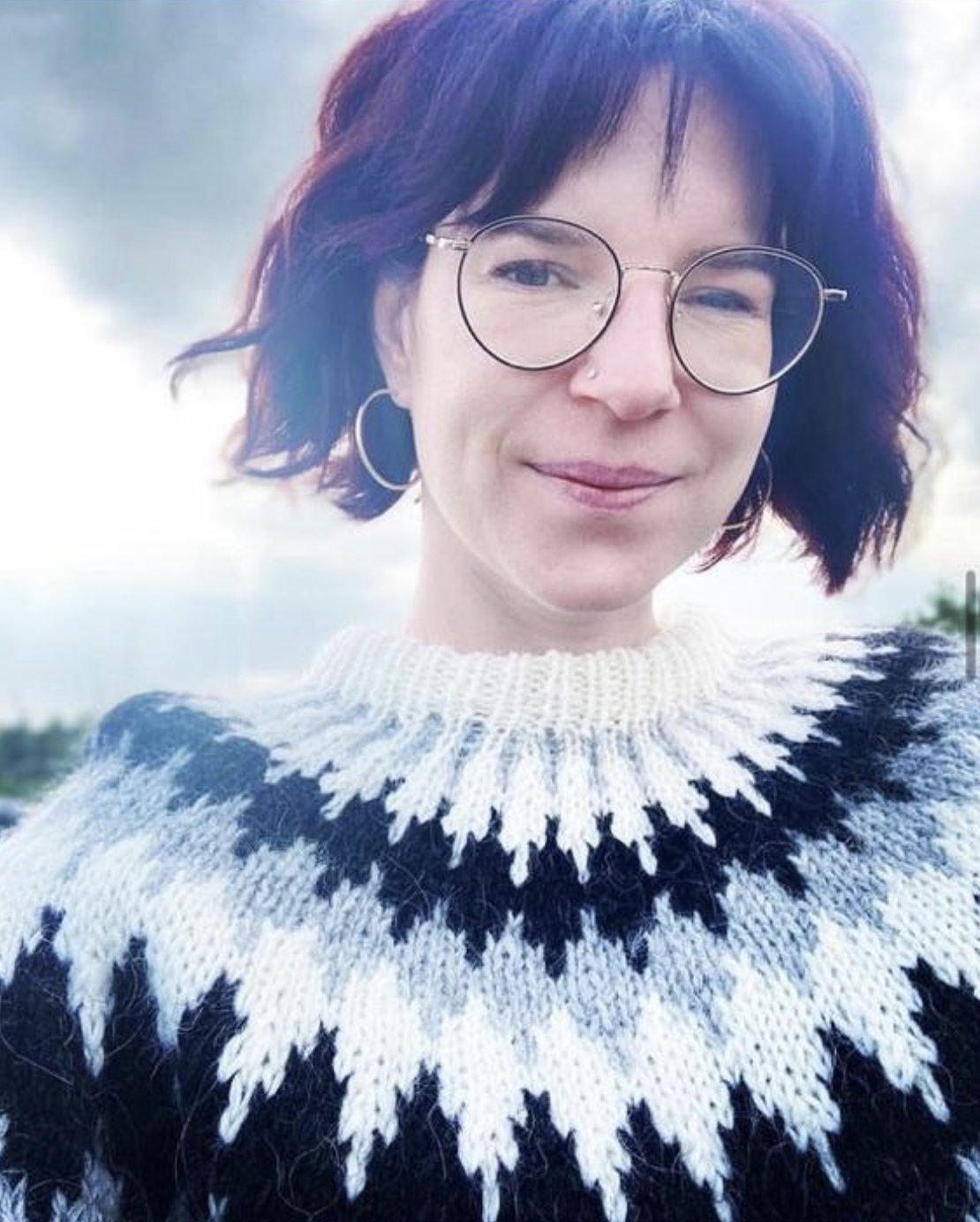Meistaraprófsvörn: Patterns of co-occurrence of parasites in Eastern Baltic cod stocks within...
 Á næstunni fara fram varnir meistaranema við Háskólasetur Vestfjarða. Viðfangsefnin eru fjölbreytt og áhugaverð og eru nemendurnir frá bæði sjávarbyggðarfræði og haf-og strandsvæðastjórnun. Varnirnar eru öllum aðgengilegar í gegnum hlekki sem finna má hér fyrir neðan en einnig er öllum velkomið að mæta á varnirnar sem fram fara í Háskólasetri Vestfjarða, Ísafirði.
Á næstunni fara fram varnir meistaranema við Háskólasetur Vestfjarða. Viðfangsefnin eru fjölbreytt og áhugaverð og eru nemendurnir frá bæði sjávarbyggðarfræði og haf-og strandsvæðastjórnun. Varnirnar eru öllum aðgengilegar í gegnum hlekki sem finna má hér fyrir neðan en einnig er öllum velkomið að mæta á varnirnar sem fram fara í Háskólasetri Vestfjarða, Ísafirði.
Nemandi: Elisa Janssen
Tími: 12. september kl. 9:00
Titill ritgerðar: Patterns of co – occurrence of parasites in Eastern Baltic cod stocks within different depth strata
Námsleið: Haf- og Strandsvæðastjórnun
Hlekkur á Zoom: https://eu01web.zoom.us/j/61157747546
Útdráttur:
The cod (Gadus morhua) stock in the eastern Baltic Sea is in a poor state and lacks signs of recovery, despite historically low fishing pressure in recent years. Poor body condition is a major feature of these cod, but the reasons for this are still unclear. The present study investigates whether infection pressure from parasites could be a cause of poor body condition. Three types of parasites were analyzed: the nematode Contracaecum osculatum, which infects the cod liver; the microsporidian parasite Loma morhua, which infects the gills and other organs; and acanthocephalans, which infect the cod intestines. Earlier analyses suggested that the water depth at which cod forages might influence parasite infestation rates. Our hypothesis is that the prevalence, as well as the intensity of infection, differs with depth stratum. In this study, 125 cod (August 2023) were analyzed in both the Bornholm Basin and the Gdansk Deep for differences between infestation rates in different depth strata. The samples were caught with bottom trawls at two depths in those two areas (approximately 43m and 67m water depth). Biological parameters were taken from each cod, and numbers of nematodes on the liver, of Loma morhua on the gills, and acanthocephala in the intestines were counted, and stomach contents were analyzed. The two sampling depths had no influence on any of the factors tested, and the data were pooled. Total length and age of cod ranged between 21 – 50 cm (average ± standard error: 34.5 ± 0.7) and 1 – 5 years (average ± standard error: 3.1 ± 0.1), respectively. The body condition of cod was relatively low (mean: 0.79 ± 0.01). All the cod examined in this study were infected with at least one of the three parasites. The prevalence and mean intensity of infection of Loma morhua as well as acanthocephala in cod examined were generally higher than Contracaecum osculatum. Cod were mainly feeding on crustaceans and less on fish. The stomach fullness index was low (mean: 0.61% in a 31-40 cm cod). Adverse changes in environmental conditions like trophic lengthening and habitat loss due to anoxia and hypoxia may have led to a lack of food supply, impairing the food web structure. High parasite loads seem to be a sign of poor health of the Baltic cod stock rather than the key reason for the poor body condition of the fish.
Yfirlit yfir meistaraprófsvarnir á þessu tímabili:
| Dags | Tími | Nemandi | Námsleið | Titil meistaraverkefnis | Zoom linkur |
|---|---|---|---|---|---|
| 3 sept | 15:00 | Emma Dexter | CRD | Evaluating Place Attachment, Climate Change Awareness, and Risk Assessment: A Nationwide Study of Iceland in Times of Escalating Natural Hazard Risk | https://eu01web.zoom.us/j/68684619097 |
| 4 sept | 13:00 | Matthew Russell | CMM | Evaluating and Addressing Climate Change Related Threats to Atlantic Salmon (Salmo salar) Habitat in the East River, Pictou County, Nova Scotia | https://eu01web.zoom.us/j/62428026881 |
| 6 sept | 9:00 | Gaëlle Messmer | CMM | Going forward: A look at small Icelandic municipalities and waste management strategies | https://eu01web.zoom.us/j/63109995907 |
| 9 sept | 13:00 | Julius Barth | CRD | Energy Transition in Nova Scotia: Lessons from Danish Experiences Developing an Offshore Wind Industry | https://eu01web.zoom.us/j/64895799487 |
| 10 sept | 9:30 | Ricarda Neehuis | CRD | The Westfjords Way: Evaluating Floating Home Implementation in Ísafjörður | https://eu01web.zoom.us/j/67507631213 |
| 10 sept | 13:00 | Mallorie Iozzo | CMM | A Site Suitability Analysis for Regenerative Ocean Farming in Long Island Sound | https://eu01web.zoom.us/j/67988684832 |
| 11 sept | 9:30 | Louise Wittwer | CRD | Plastic vs. Policy: A Plastic Pollution Policy Analysis in the Arctic | https://eu01web.zoom.us/j/68018684579 |
| 11 sept | 13:00 | Orla Mallon | CMM | Exploring Benthic Biodiversity using Underwater Imagery in Melville Bay, Greenland | https://eu01web.zoom.us/j/62528427919 |
| 12 sept | 9:00 | Elisa Janssen | CMM | Patterns of co – occurrence of parasites in Eastern Baltic cod stocks within different depth strata | https://eu01web.zoom.us/j/61157747546 |
| 12 sept | 14:00 | Sophie Martell | CMM | Human-Wildlife Conflict in Iberian Waters: Orcinus orca and Vessels’ Encounters from a Socio-Ecological Systems Approach | https://eu01web.zoom.us/j/69084877127 |
| 13 sept | 8:30 | Ela Keegan | CRD | Coastal Heritage and How Resilience Can Manifest in The Face Of Change: A Case Study Using Social Arts Practices in Rakiura, Aoeatora/New Zealand. | https://eu01web.zoom.us/j/61113812289 |
| 16 sept | 9:30 | Rozalie Rasovzka | CRD | Women and northern paganism: Feminine aspect and roles of women in contemporary pagan organization Ásatrú in Iceland | https://eu01web.zoom.us/j/63043654968 |
| 16 sept | 13:00 | Lara Kumm | CMM | Coastal Classification of Jones Sound in the Canadian High Arctic | https://eu01web.zoom.us/j/62135985443 |